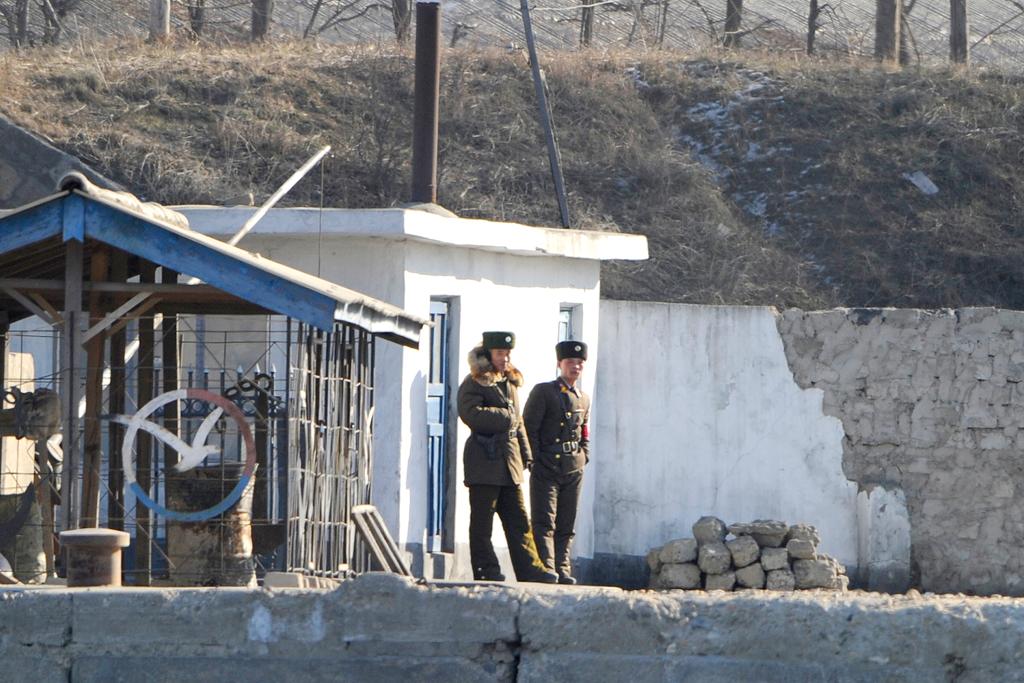North Korean nuclear blast rumors
North Korean soldiers stand guard along the bank of the Yalu River in the North Korean town of Sinuiji, on Dec. 22, 2011.
TOKYO, Japan — Never underestimate North Korea's ability to keep the rest of the region edge.
That much was apparent on Friday after unsubstantiated rumors about an explosion at its main Yongbyon nuclear facility unsettled its neighbor to the south.
South Korean stocks fell by more than 2 percent at one point, and the won weakened against the dollar, amid speculation that the facility — the center of the regime's uranium enrichment program — had experienced a serious accident.
"The exchange rate moved sharply on rumors that a nuclear facility exploded in North Korea at a time when euro zone concerns had already depressed sentiment," a currency trader at a South Korean bank told Reuters.
More from GlobalPost: Ex-North Korea propaganda artist debuts paintings in US
The South Korean government said it had no knowledge of an explosion, and the US Geological Survey detected nothing that suggested unusual seismic activity north of the demilitarized zone dividing the two Koreas.
Later in the day, US assistant secretary of state Kurt Campbell, who is in Seoul, said he was not aware of any explosion.
Financial regulators in the South said they would investigate the scare in case a mischievous trader had started the rumor in the hope of making a quick profit from falls in South Korean stocks and currency.
It isn't the first time that tenuous reports about the North's new regime have caused jitters elsewhere.
GlobalPost in-depth series: After Kim Jong Il
Kim Jong Un had barely got his feet under the table in Pyongyang when reports circulated that he had been assassinated and China had sent troops across the Tumen river into North Korea.
Days after Twitter users fueled gossip that Fidel Castro had died, claims that Kim Jong Un had fallen victim to a coup were circulating on Weibo, China's answer to Twitter, and two other social media sites in the country. Chinese authorities moved quickly to erase the posts.
Yongbyon is already a cause for concern: two weeks before Kim Jong Il's death, North Korea said it was making swift progress on work to build a light-water nuclear reactor and enrich uranium at the complex.
That would give it a second means of building nuclear weapons, in addition to its plutonium-based program.
The World is an independent newsroom. We’re not funded by billionaires; instead, we rely on readers and listeners like you. As a listener, you’re a crucial part of our team and our global community. Your support is vital to running our nonprofit newsroom, and we can’t do this work without you. Will you support The World with a gift today? Donations made between now and Dec. 31 will be matched 1:1. Thanks for investing in our work!
